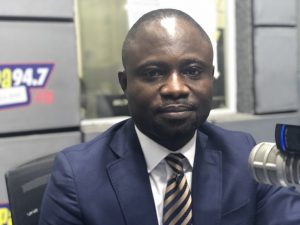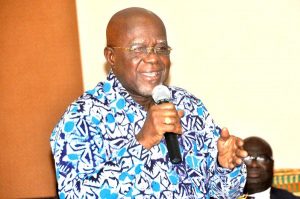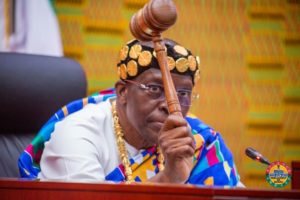The Minority Chief Whip in Parliament, Muntaka Mubarak has described a ruling by the Supreme Court as an “attack on the legislature”.
The Apex Court on Wednesday ruled that a Deputy Speaker can be counted during the formation of a quorum for parliamentary decision-making and participate in voting while presiding over parliamentary business.
Speaking on Top Story on Wednesday, Muntaka Mubarak decried the Supreme Court’s decision.
He noted that the Minority will within one month seek a review of the ruling by the Court.
“They say that in Article 102 where it says that quorum excludes the one presiding. That one they agree, at the time that they agree that 102 excludes the one presiding including the First Deputy Speaker or any member which they agree, that time the First Deputy or Second Deputy is no longer a Member of Parliament. But where they disagree is 104 where it talks about present and voting…Can you be present and not be counted but vote? We see that as serious inconsistency,” he stated.
Reacting to the Court’s decision to strike out a standing order of Parliament, he said “I find that to be really the Judiciary attacking an arm of government, that’s Parliament”.
According to the Asawase MP, the Supreme Court must be mindful of its actions.
Meanwhile, the Minority Leader, Haruna Iddrisu has described the ruling as a travesty of justice.
Speaking on the Joy FM’s Midday News on Wednesday, he said, “this ruling of the Supreme Court, we are not surprised, but we are utterly disappointed in the Supreme Court which is determined to support a struggling President with an ailing economy. This ruling of the Supreme Court can as best be described as judicial support for e-levy…to set aside Parliament standing orders, is a serious travesty of parliamentary justice,” he said.
Mr. Iddrisu insisted that the Deputy Speaker cannot hold the seat as a Member of Parliament when presiding.
“Everywhere in the world, the vote of the presiding officer is discounted either as Speaker or Deputy Speaker in accordance to standing order 13. Can you ask yourself this question, assuming the First Deputy Speaker is presiding and the Second Deputy Speaker is not immediately available, how is he going to vote and come back to preside and continue to preside? I leave that to the judgment of the Ghanaian people.”
The Tamale South legislator also suspects that the ruling forms part of a grand scheme to ensure that the E-Levy Bill is passed.
“This is a judicial support for President Nana Akufo-Addo’s E-Levy that he is labouring to pass,” he said.
Private Legal Practitioner Justice Abdulai filed the case against the Attorney General, asking the Court to interpret Articles 102 and 104 of the 1992 Constitution and declare the action of Mr Osei Owusu as unconstitutional.
In defence of the state, the Attorney-General (A-G), Godfred Yeboah Dame, argued that there is no express provision in the 1992 Constitution that stops a Deputy Speaker presiding over proceedings from voting or counting himself as part of MPs present to form the right quorum.
The Apex Court comprising Justices Jones Dotse, Nene Amegatcher, Prof Ashie Kotey, Mariama Owusu, Lovelace Johnson, Clemence Honyenuga, and Emmanuel Kulendi affirmed the arguments of the Attorney-General.







